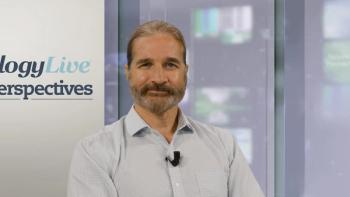
Dr Bruce Hughes and Dr Robert Naismith discuss how high-efficacy therapies have impacted the understanding of disease progression and multiple sclerosis care.

Dr Bruce Hughes and Dr Robert Naismith discuss how high-efficacy therapies have impacted the understanding of disease progression and multiple sclerosis care.
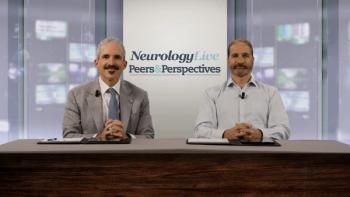
Dr Robert Naismith describes changes in the understanding of acquired disability in Multiple Sclerosis (MS) over the years, with a particular focus on relapse-associated worsening (RAW) and progression independent of relapse activity (PIRRA).
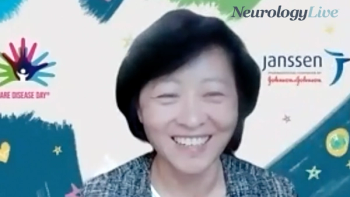
The senior director and global compound development team leader at Janssen discussed research on nipocalimab, an investigational agent for patients with myasthenia gravis that's shown promising data to this point. [WATCH TIME: 2 minutes]
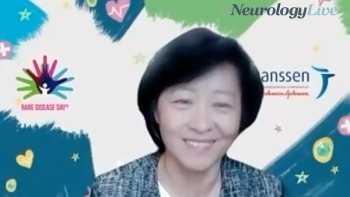
The senior director and global compound development team leader at Janssen talked about the importance of biomarkers in detecting an earlier diagnosis of myasthenia gravis and the significant unmet medical need for better treatment options. [WATCH TIME: 3 minutes]
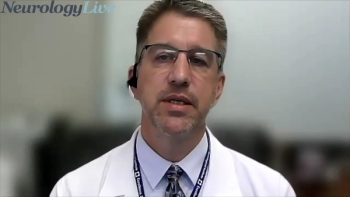
The vice-chair for research at Cleveland Clinic’s Neurological Institute discussed the way therapies are currently assessed for progressive MS and the need for disease-specific biomarkers. [WATCH TIME: 3 minutes]
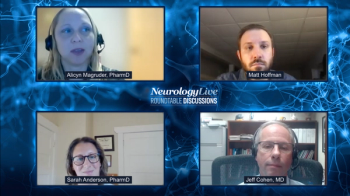
Jeffrey Cohen, MD; Sarah Anderson, PharmD, NBC-HWC; and Alicyn Magruder, PharmD, BCACP, MSCS, share their final thoughts on the future landscape of clinical MS care in the biosimiliars era. [WATCH TIME: 12 minutes]
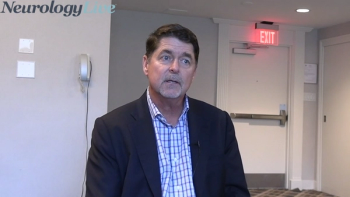
The chief executive officer of Cognito Therapeutics detailed clinical findings from the open-label extension of the phase 2 OVERTURE study presented at the recent Clinical Trials on Alzheimer’s Disease conference. [WATCH TIME: 4 minutes]
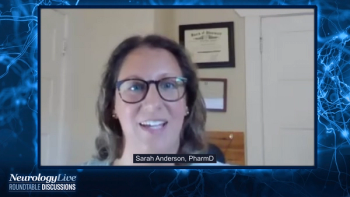
The group continues discussion about patient communication needs, and Sarah Anderson, PharmD, shares resources that the National MS Society offers to both patients and providers. [WATCH TIME: 9 minutes]
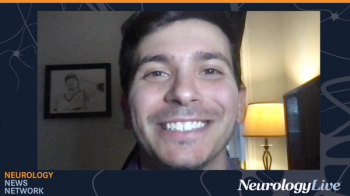
Neurology News Network for the week ending October 28, 2023. [WATCH TIME: 4 minutes]
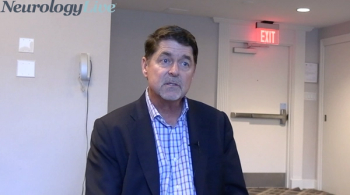
The chief executive officer of Cognito Therapeutics provided an in-depth overview of the company’s gamma sensory stimulation device, its mechanism of action, and why it serves as a promising therapy for patients with Alzheimer disease. [WATCH TIME: 5 minutes]
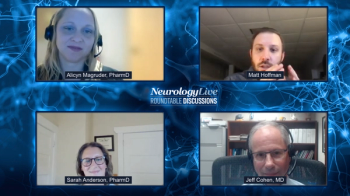
Jeff Cohen, MD, and Alicyn Magruder, PharmD, BCACP, MSCS, discuss the best practices when switching to a biosimilar therapy, including patient education and when to consider an insurance appeal. [WATCH TIME: 7 minutes]
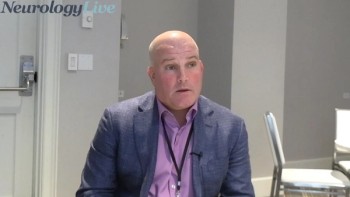
The senior vice president of clinical development at Vaccinex provided commentary on a presentation from CTAD 2023 highlighting the therapeutic potential of peptinemab, an agent that’s shown success in Huntington disease, in patients with Alzheimer disease. [WATCH TIME: 3 minutes]

The chief executive officer at AmyriAD Therapeutics discussed the limitations of clinical trials assessing potential disease-modifying therapies for Alzhiemer disease including the lack of a diverse patient population and nonthorough clinical assessments for diagnosis. [WATCH TIME: 6 minutes]
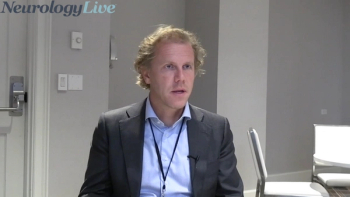
The neurologist and senior research at the Amsterdam University Medical Centers’ Alzheimer Center discussed the reasons behind the use of quantitative EEG in assessing Cognition Therapeutics' Alzheimer agent CT1812. [WATCH TIME: 3 minutes]
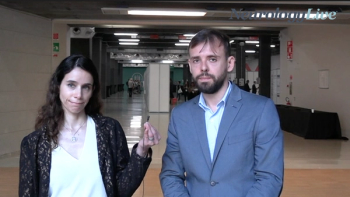
The neuroimmunologist at Clínica Alemana de Santiago and the head of the University Center for Multiple Sclerosis at Ramos Mejía Hospital talked about Latin America’s pursuit of expanding treatment options and patient inclusivity as a focus of neurological censuses in NMOSD. [WATCH TIME: 5 minutes]
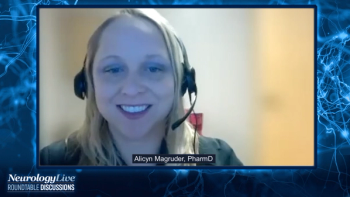
Alicyn Magruder, PharmD, BCACP, MSCS, offers insight into the pharmacist's role in patient education on biosimilars for MS, and the group discusses the potential need for a long-term monitoring system. [WATCH TIME: 10 minutes]
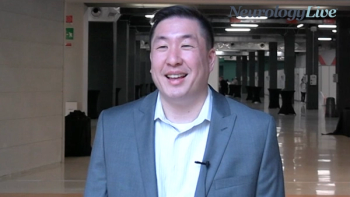
The associate professor of clinical neurology at the University of California, Irvine School of Medicine, discussed the use of a multiple sclerosis disease activity test and serum biomarkers in improving the landscape of care for patients. [WATCH TIME: 5 minutes]
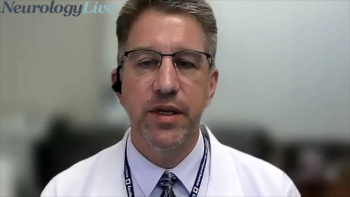
The vice-chair for research at Cleveland Clinic’s Neurological Institute provided commentary on the expanded research of GFAP in multiple sclerosis and whether certain biomarkers may predict treatment response. [WATCH TIME: 8]
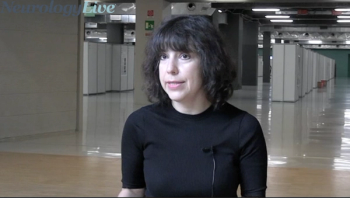
The clinical neurologist at the MS Center of Catalunya provided perspective on her presentation from MSMilan 2023, focusing in on key factors when diagnosing multiple sclerosis from other similarly presenting disorders. [WATCH TIME: 5 minutes]
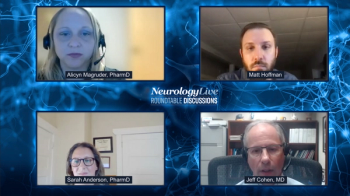
A group of panelists set the stage for the introduction of biosimilar therapies in multiple sclerosis care, and offer an overview of the current landscape of treatment. [WATCH TIME: 9 minutes]
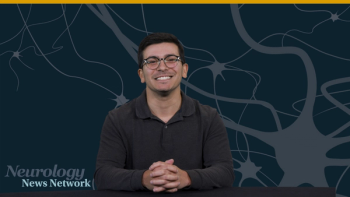
Neurology News Network for the week ending October 21, 2023. [WATCH TIME: 3 minutes]
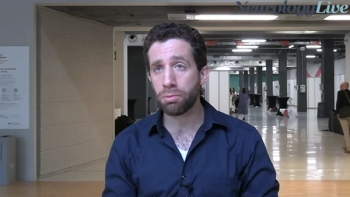
The research fellow at the Amsterdam University Medical Center provided thoughts on the possibilities of assessing cognitive decline in clinical settings for patients with multiple sclerosis. [WATCH TIME: 5 minutes]
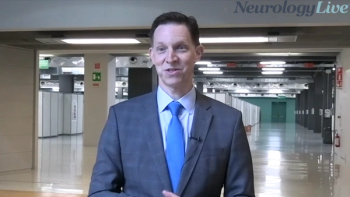
The director and founder of The MS Center for Innovations in Care provided thoughts on the potential role of biosimilars in treating multiple sclerosis and the steps needed to ensure that this integration process is safe. [WATCH TIME: 4 minutes]
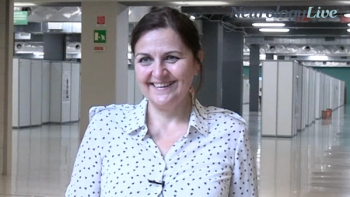
The neurologist in the Danish Multiple Sclerosis Center at Copenhagen University Hospital discussed the debate surrounding the use of hormone therapy in multiple sclerosis treatment, highlighting the need for more clinical evidence to support its use. [WATCH TIME: 5 minutes]
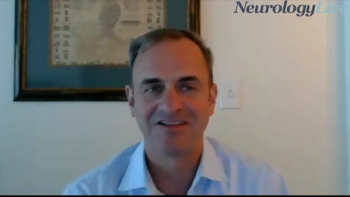
The chief of the Movement Disorders Division at Mass General Hospital discussed the challenges medical students face in pathing their career and the importance of a strong mentor figure. [WATCH TIME: 6 minutes]
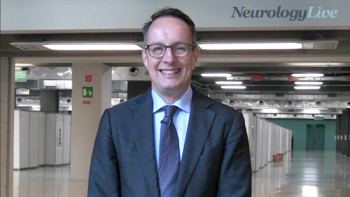
The global program head of the development unit for neuroscience at Novartis talked about the evolving landscape of mental health care for multiple sclerosis including the accessibility barrier that remains for patients in many regions. [WATCH TIME: 4 minutes]

The pediatric neuromuscular neurologist at Arkansas Children's Hospital and associate professor of pediatrics at the University of Arkansas for Medical Sciences talked about findings from a phase 1/2 study on dosing 3 pediatric patients with Duchenne muscular dystrophy with REGENXBIO’s RGX-202. [WATCH TIME: 4 minutes]

Episode 38 of the AUPN Leadership Minute features Muhammad "Mud" Alvi, MD, of West Virginia University Robert C. Byrd Health; and David B. Watson, MD, of West Virginia University Robert C. Byrd Health. [WATCH TIME: 5 minutes]
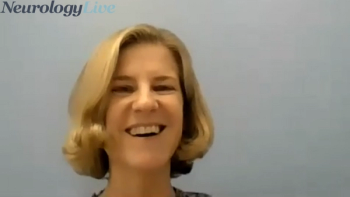
The head of Biogen’s MS and Immunology Department Unit detailed the potential of combination approaches to treat MS, including the reasons for diroximel fumarate in the newly initiated phase 2 FUSION study. [WATCH TIME: 3 minutes]
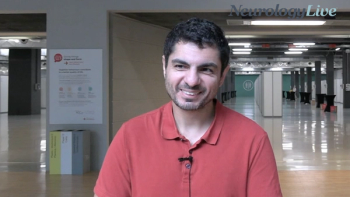
The senior neurologist at the University Hospital Center of Nice in France talked about a digital tool developed to monitor disability more accurately in patients with multiple, especially during the early stages of the disease. [WATCH TIME: 5 minutes]